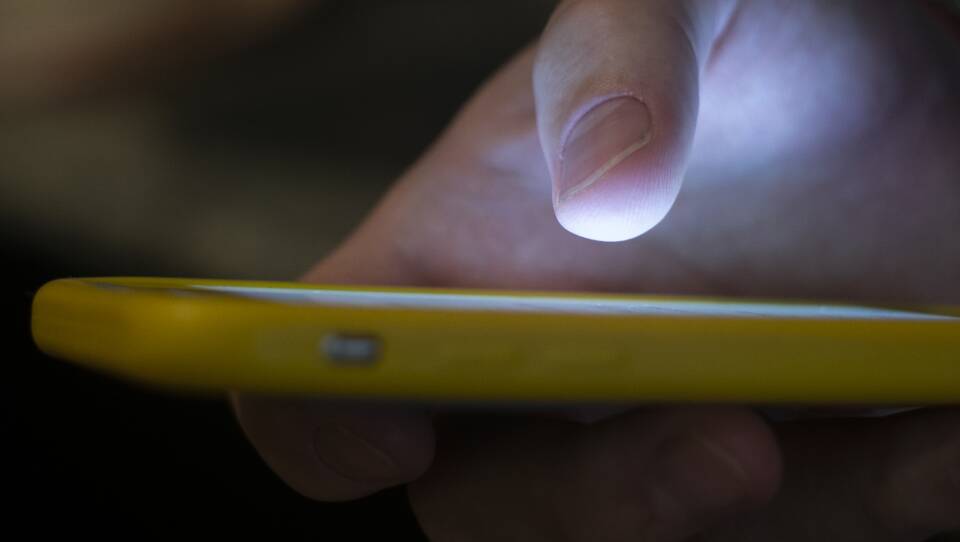Since its launch two years ago, the 988 Suicide & Crisis Lifeline has received more than 130,000 calls from Massachusetts residents, and numbers are growing, according to data provided by local call centers.
In 2022, Massachusetts joined the national network to provide confidential and free mental health care and suicide prevention over call or text. Now, organizers say the volume of calls has jumped, and call centers are seeking staffers to accommodate the need and reduce wait times.
Paul Mina, chief executive of Mass211, which runs Call2Talk, one of the state’s largest call centers, says his company needs more workers to improve service.
“The number one thing that we need, the number one thing that would help make those wait times faster is manpower,” said Mina, whose company employs about 100 people who work on around-the-clock shifts. “Manpower is costly.”
The state’s answering rate – which represents how many calls are picked up by call centers – is 87%, according to a report published last month by the national advocacy organization Inseparable. The goal is to get above 90% consistently.
Last month, the state’s Department of Public Health awarded $8.3 million in state and federal grants to five community organizations in the state’s 988 system, including Call2Talk and four Samaritans call centers.
The bulk of those funds will go towards hiring new employees for the call centers, said Eileen Davis, Mass211 vice president and the director of Call2Talk.
“Keeping up with the capacity is always going to be first and foremost priority,” she said. “If you don’t have trained, compliant call takers in their seats to answer calls, there’s no network.”
In the first year of its launch, 988 received 62,318 calls, according to data submitted to the national network by local call centers. Between July of last year and May of 2024, the call centers surpassed the first year’s total with 67,863 calls.
Clinicians are trained to field calls from people experiencing suicidal ideation or a mental health crisis. Sometimes people call when therapists are unavailable or inaccessible, Davis says.
“Therapists have boundaries – they have a 50-minute session, they have vacation, they have office hours, whatever. We don’t,” Davis said. “Everybody, every agency, clinicians, the hospitals, and the emergency rooms tell patients to call 988, they throw everything to us. We even get isolated, lonely older adults that just don’t have anybody.”
The 998 network is available in every state since its launch in July of 2022. Davis says the network is still a “work in progress.” Though some other call centers route calls by cell towers, the 988 system uses area codes – which can create an issue if a Massachusetts resident has an out-of-state area code or lives in another state but kept the same number, Davis said.
“They’ve been working on it since the beginning, and it sounds like it will happen by the beginning of 2025,” Davis said. Mass211, which connects residents to a wider range of state resources, uses cell towers to field calls, “but 988 has a little bit of catch-up to do there, and they’re working on that,” she said.
Expanding and funding 988 is part of a larger statewide initiative to bolster mental and behavioral health resources. In May, Gov. Maura Healey’s administration announced $13 million to fund a mental health program in state schools. On Tuesday, the state allocated $2.8 million to mental health providers in “historically underserved areas,” including Brockton, Roxbury, Northbridge, Fitchburg, Lowell, and Worcester.
Mina said the increase in call volumes could be attributed to mental health issues as a result of the pandemic or simply the greater awareness that such a resource exists after opting into the national program.
“It has brought resources and notoriety to the mental health cause,” he said. “In the long run, it’s going to prove very beneficial to help improve the quality of life for people here in Massachusetts.”
Beyond funding for additional staff, federal and state funds will help spread the word about 988, Mina said, reducing the stigma associated with asking for help.
“The whole idea here is to provide hope, and the earlier you call, the better it is,” he said. “There’s nothing wrong or embarrassing about talking to somebody about how you feel.”





